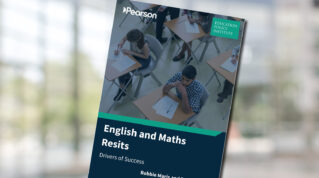College income from foreign students and overseas projects is recovering following a huge dip in the aftermath of Brexit and the pandemic, FE Week analysis of government data suggests.
But the £40 million received last year is still down a quarter on total international income in 2018-19 when £54.1 million was generated. Regulatory and accommodation burdens are also prompting many colleges to cease the offer.
Universities are under the spotlight for their reliance on international students with most of their fee income now generated from abroad.
While most education export information available relates to HE providers, the Department for Education does publish an annual database of college accounts that includes data on their international income.
FE Week analysis of the database found that in 2018-19, 87 colleges earned a combined total of £54,132,000 from either foreign students paying fees to study with them in England or from training projects that they deliver in other countries – working out at an average of £622,000 per college.
This plummeted in 2020-21 when 63 colleges received £27,196,000 in international income, an average of £431,683.
Signs of recovery are found in the latest available data for 2022-23, when 53 colleges earned £39,971,000 (£754,000 on average).
Our analysis shows that the international income accounted for just 0.8 per cent of total college sector income in 2018-19 and 0.5 per cent in 2022-23.

‘Our work is under-reported and undersold’
The annual database does, however, have limitations as late filing means some data is always missing. But the spreadsheet is the most accurate picture of college international income in the absence of a full analysis of colleges’ individual accounts.
Emma Meredith, the director of skills and international policy act the Association of Colleges (AoC), said the “fantastic” international work of colleges was “too often under-reported and undersold”.
“Several” policies were also a major barrier to reaching the pre-pandemic income.
Aside from Brexit impacting England as a partner for students and the pandemic halting travel, other factors include the move from Erasmus+ to the Turing placements scheme, and long-standing “complicated and lengthy” visa process issues.
The government’s approach to immigration has also restricted the recruitment of non-UK students in colleges, according to the AoC, as have accommodation challenges.
Exeter College earned almost £500,000 from international students in 2018-19, but has since pulled out of the offer.
This was to “prioritise meeting the needs of students from the local area”, said a spokesperson.
The college “enjoyed the additional diversity and richness the international cohort brought to our sixth form” and leaders “may” look to restart recruitment in the future.
‘Good’ Ofsted grade is vital
English colleges that do not hold a ‘good’ or higher Ofsted grade are also banned from recruiting.
Nottingham College earned £400,000 in international fees in 2018-19, but was forced to withdraw its licence for sponsoring overseas students in 2020 when it was judged ‘requires improvement’. It has since returned to ‘good’, but decided not to re-enter the international space.
A spokesperson said: “The investment required to re-establish a level of international provision would be almost certainly better spent on supporting the development of our offer that directly responds to local and regional need.”
The AoC released its own report this week that included a survey of college international activity in 2022-23.
Of the 40 responses, 63 per cent said that staffing capacity has had a negative impact on international work.
The survey found a significant fall in the number of colleges with at least one member of staff dedicated to international work: 21 per cent compared with 72 per cent in 2021-22.
The AoC claimed that colleges offered “brilliant” value for money to international students, with the average fees for one year of an HE course set at £7,857 – at least half the fees charged by many universities.
Since the pandemic, numerous global events have led to rising numbers of international students coming to the UK.
AoC’s survey found 79 per cent of colleges welcomed learners from Ukraine, as well as 42 per cent welcoming Afghan citizens in 2022-23.
FE Week’s analysis of DfE data shows some colleges’ income from international fees is booming, however. NCG earned almost £2 million last year compared with £800,000 in 2018-19. Chichester College Group similarly more than doubled its foreign student income over this period to £2.1 million in 2022-23.
Our analysis also found that only seven colleges had an overseas campus in 2022-23, generating income that totalled £15.7 million. Almost £12 million of this was earned by Lincoln College alone from its operation in Saudi Arabia, while Burton and South Derbyshire College brought in £2.2 million from its venture, also in Saudi.
Nina Chorzelewski, AoC’s policy manager, said: “FE colleges continue to value working globally … providing a wide variety of opportunities for diverse groups of people, all of which can be potentially life changing for students.”

















Your thoughts